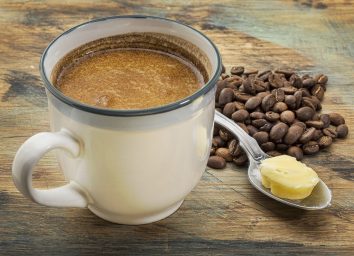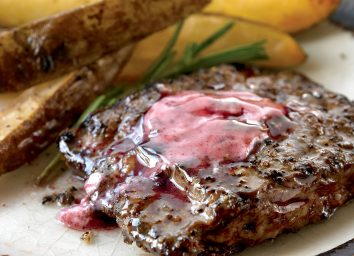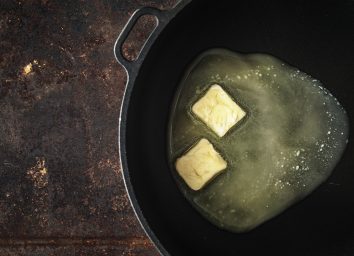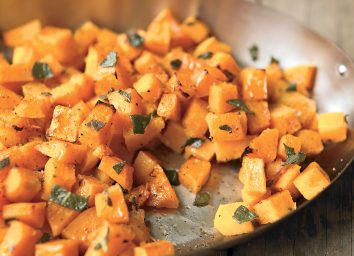What's the Difference Between Butter and Margarine?
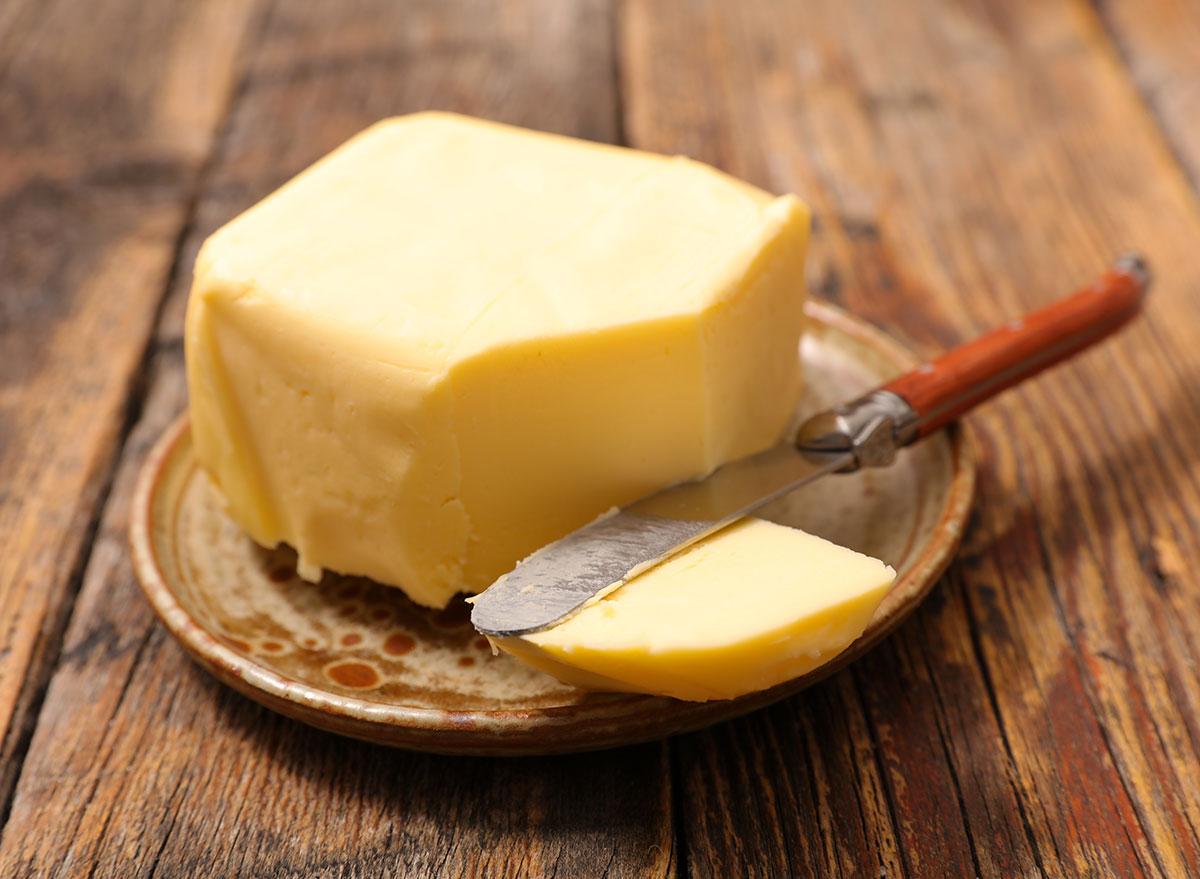
How many times have you confused butter with margarine? Probably more times than you're willing to admit when it comes to the butter vs. margarine debate. The two are actually quite different, though, with very different origins, despite how they're often used interchangeably in cooking and baking. Butter has supposedly been around since 8000 B.C. when a herdsman in what is now Africa discovered that the sheep's milk he had been carrying across rough terrain had curdled into butter. Margarine is much younger, having been invented by French chemist Hippolyte Mège-Mouriès in the 1860s after Napoleon III had announced he was looking for a cheap butter substitute during the Franco-Prussian wars. That's exactly what margarine is today: a substitute to butter.
To better understand the difference between butter and margarine, we called on Maryann Walsh MFN, RD, CDE, and Claudia Sidoti, head chef of Hello Fresh, to explain how the two differ and what foods they should be incorporated into for the best results. This way, you'll never be confused about the butter vs. margarine debate ever again.
What are the main differences between butter and margarine?
Butter and margarine are comprised of entirely different ingredients.
Sidoti and Walsh both say that butter is made from churning milk or cream, whereas margarine is typically a non-dairy product that's made from oils and emulsifiers. Know that not all kinds of margarine are dairy-free, though, so if lactose is an issue for you, be sure to read the list of ingredients.
"The churning process separates butterfat from the buttermilk," explains Sidoti.
There are also different kinds of butter.
"Butter is typically pale yellow in color, but can also be deep yellow. When butter is labeled 'sweet cream butter,' this means the cream used to make it was pasteurized. Whipped butter adds air into the butter, making it lighter," she says.
As for margarine, there really isn't too much variation.
"You can find it in stick or tub form. The fat content can range from 10-90 percent," says Sidoti. "Margarine has less cholesterol and saturated fat than butter, but a higher percentage of polyunsaturated and monounsaturated fats."
Polyunsaturated and monounsaturated fats are healthy fats found in vegetable oil and olive oil, respectively. However, there is something you should be mindful of when purchasing margarine.
"Some margarine products may still contain trans fats. However, in the next couple of years, product manufacturers are being required to phase out trans fat," says Walsh.
Trans fats are made by hydrogenating unsaturated fats so the food product that it's in doesn't go rancid, but at what cost? According to the American Heart Association, trans fat is known to raise the harmful kind of cholesterol known as LDL, which increases your risk of developing cardiovascular disease, heart attack, and stroke.
Butter vs. margarine: which is healthier?
"Margarine does not contain cholesterol because it is not derived from any animal product, so for those watching their cholesterol, margarine may be recommended. There are healthier versions of margarine popping up continuously. However, for those seeking a more natural fat spread or fat for baking, butter holds that title," says Walsh.
Are there any dishes where you would use one and not the other?
"Butter is hands-down the best for baking," says Sidoti.
The chef explains that it's especially good for baking things like pies, biscuits, cake, and cookies because of its high-fat content. Butter is also a better option for frying foods and melted on top of baked potatoes, too.
Sidoti rarely uses margarine, but she does say that it's also an option for using in baked goods, especially when you want to achieve a softer texture. However, the fat content is low, which means it may not yield that deliciously rich flavor that we typically associate with butter.
Do butter and margarine actually taste different?
Yes, they definitely do.
"The type of fat found in both is what sets their taste apart," says Sidoti. "Since margarine is made with vegetable oil, the consistency is completely different."
This also means that margarine could potentially alter the flavor of a dish. In fact, margarine contains more water than butter, which could result in tougher baked goods and thinner, runny batters that aren't as rich and thick as they would be when made with butter.
